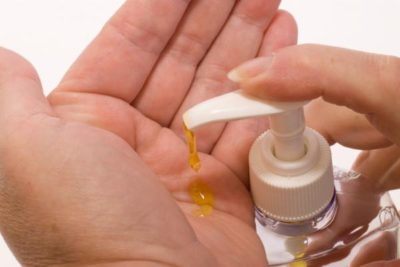 Antibacterial soaps are no more effective than using traditional soap and may contain potentially toxic chemicals that pose a health risk, the US Food and Drug Administration (FDA) has concluded. To make matters worse, the popular soaps could actually make bacteria stronger and more resistant to antibiotics.
Antibacterial soaps are no more effective than using traditional soap and may contain potentially toxic chemicals that pose a health risk, the US Food and Drug Administration (FDA) has concluded. To make matters worse, the popular soaps could actually make bacteria stronger and more resistant to antibiotics.
“New data suggest that the risks associated with long-term daily use of antibacterial soaps may outweigh the benefits,” FDA microbiologist Colleen Rogers said. Rogers believes that some of the chemicals used in the soaps could interfere with human hormones and make bacteria resistant to bacteria.
The FDA has responded to these concerns by proposing a new rule that would require manufacturers to prove claims that antibacterial soaps and body washes are more effective than other products. Products that don’t live up to such claims would have to be reformulated, relabeled or removed from the market.
Soaps contain chemicals that have been banned in Europe
One of the FDA’s main concerns center around a chemical called triclosan. The European Union banned the use of triclosan in soap in 2010 because of its potential health effects. The FDA and the EPA are planning to do a full analysis of triclosan and similar chemicals to see if they are a threat to public health.
Some of the concerns about chemicals like Triclosan include:
- Laboratory research indicates that continued exposure to such chemicals could lead to hormonal imbalances. Such hormonal imbalances could lead to health problems including infertility, early puberty and cancer.
- There are laboratory studies that indicate triclosan can make bacteria stronger and more resistant to antibiotics. That means instead of preventing bacterial contamination, these soaps could make the problem worse.
- New data indicates that the rate of exposure to triclosan and other chemicals in antibacterial soaps is higher than previously thought.
This might just be the most comprehensive guide to back to basics living ever published…
There have been no laboratory tests to determine if antibacterial soaps actually reduce infection rates, Rogers noted. Triclosan is a powerful toxic chemical that is also used as a pesticide.
Triclosan and tricloarban (used in bar soaps) are often added to other products including toothpaste, dish soap and some cleaning products.
Triclosan is found in 75 percent of the antibacterial soaps and body washes made in the US including Dial.
Not all anti-bacterial products effected
The FDA’s new rule would only affect hand and other anti-bacterial soaps that are used with water. Hand sanitizers would not be covered because their main active ingredient is alcohol, which is a proven disinfectant.
“While the FDA continues to collect additional information on antibacterial hand soaps and body washes, we encourage consumers to make an educated choice about what products they choose to use,” said Sandra Kweder, deputy director of the Office of New Drugs at the FDA’s Center for Drug Evaluation and Research. “Washing with plain soap and running water is one of the most important steps consumers can take to avoid getting sick and to prevent spreading germs to others.”
How to protect yourself and your family
To protect your family you can simply buy natural and organic soaps and other products that don’t contain these chemicals. These are available online and from most grocery and discount stores. You also could make your own soap.
The bottom line is that once again artificial chemicals added to products are having the opposite effect of what was intended.
Sign up for Off The Grid News’ weekly email and stay informed about the issues important to you
 Off The Grid News Better Ideas For Off The Grid Living
Off The Grid News Better Ideas For Off The Grid Living




